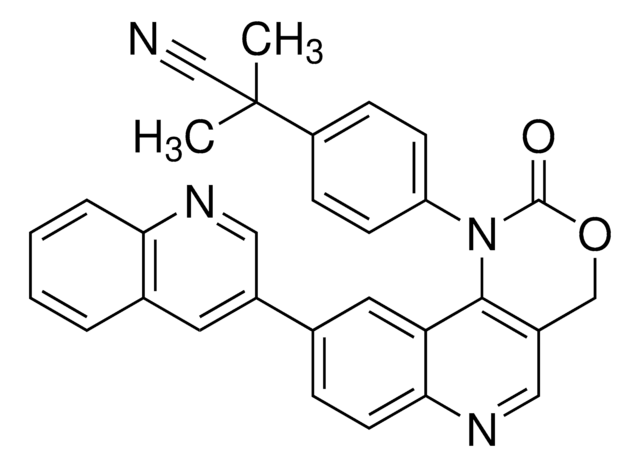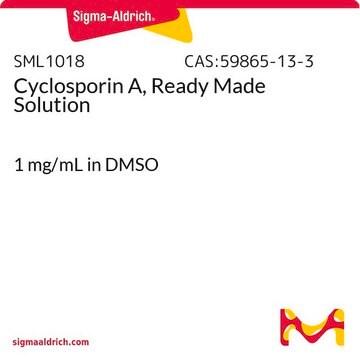220486
Chk2 Inhibitor II
Chk2 Inhibitor II, BML-277, CAS 516480-79-8 is a cell-permeable, potent, reversible, ATP-competitive inhibitor of Chk2 (IC₅₀ = 15 nM).
Synonym(s):
Chk2 Inhibitor II, 2-(4-(4-Chlorophenoxy)phenyl)-1H-benzimidazole-5-carboxamide
About This Item
Recommended Products
Quality Level
Assay
≥95% (HPLC)
form
solid
potency
15 nM IC50
manufacturer/tradename
Calbiochem®
storage condition
OK to freeze
protect from light
color
pale yellow
solubility
DMSO: 5 mg/mL
shipped in
ambient
storage temp.
2-8°C
InChI
1S/C20H14ClN3O2/c21-14-4-8-16(9-5-14)26-15-6-1-12(2-7-15)20-23-17-10-3-13(19(22)25)11-18(17)24-20/h1-11H,(H2,22,25)(H,23,24)
InChI key
UXGJAOIJSROTTN-UHFFFAOYSA-N
General description
Biochem/physiol Actions
Chk2
Packaging
Warning
Reconstitution
Other Notes
Legal Information
Storage Class Code
11 - Combustible Solids
WGK
WGK 3
Certificates of Analysis (COA)
Search for Certificates of Analysis (COA) by entering the products Lot/Batch Number. Lot and Batch Numbers can be found on a product’s label following the words ‘Lot’ or ‘Batch’.
Already Own This Product?
Find documentation for the products that you have recently purchased in the Document Library.
Our team of scientists has experience in all areas of research including Life Science, Material Science, Chemical Synthesis, Chromatography, Analytical and many others.
Contact Technical Service







